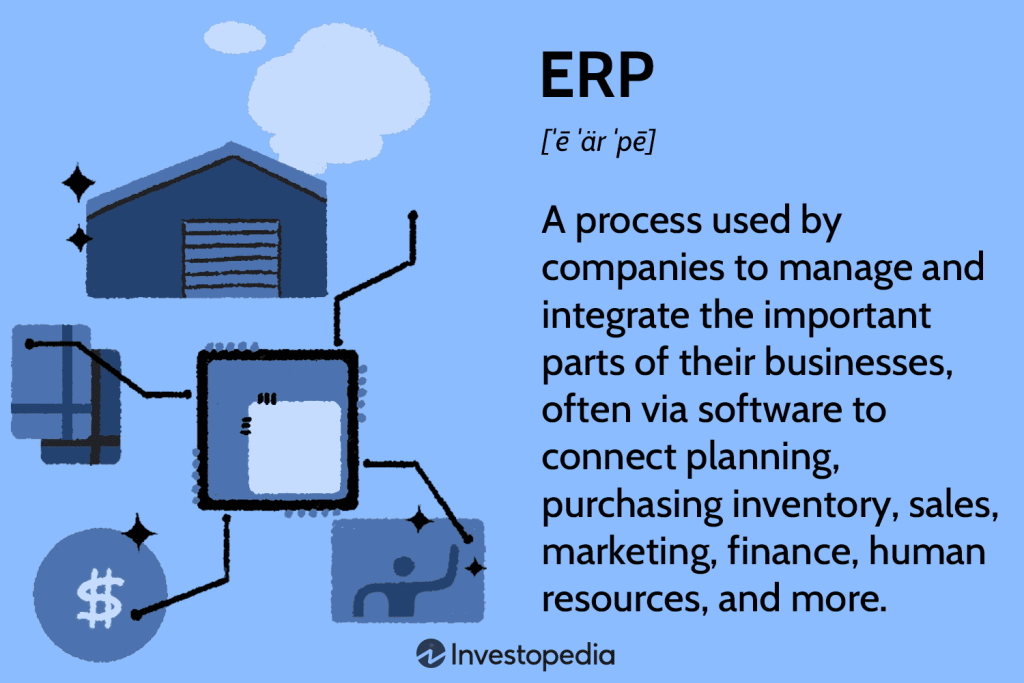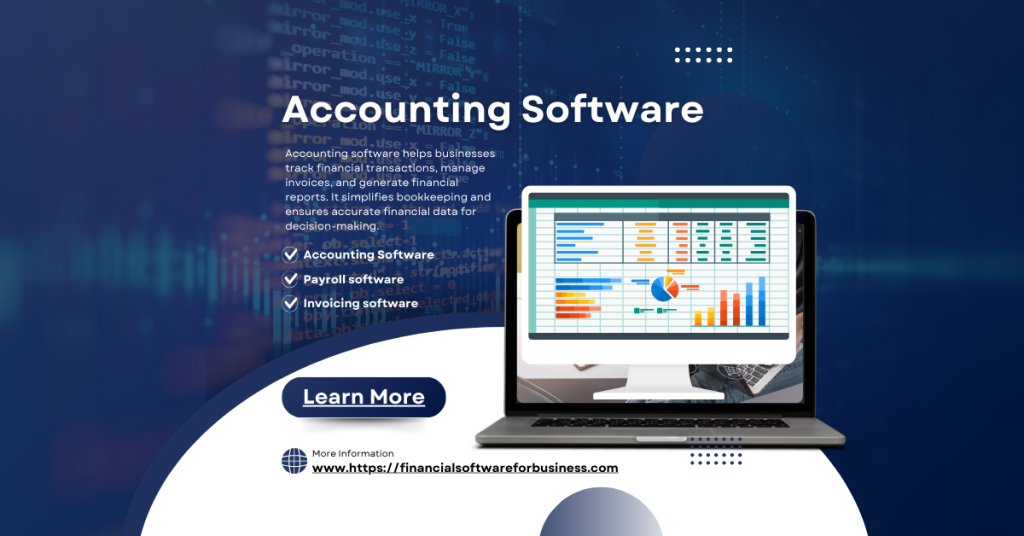ERP stands for Enterprise Resource Planning. It is a type of software used by organizations.
ERP helps manage and automate many business processes. In today’s fast-paced world, businesses need efficient tools to stay competitive. ERP software integrates various functions like finance, HR, supply chain, and more into a single system. This integration streamlines operations, reduces errors, and saves time.
Imagine having all your business data in one place, accessible in real-time. That’s the power of ERP. It provides a holistic view of the organization, enabling better decision-making and improved productivity. Whether you run a small business or a large enterprise, ERP can be a game-changer in managing resources effectively. Understanding ERP is essential for anyone involved in business management. Let’s explore what ERP is and how it can benefit your business.
Core Components Of Erp
Finance and accounting are vital parts of ERP. They help track money. Budgets and expenses are managed here. It ensures accurate financial records. This helps in making better decisions. ERP systems also handle taxes and payroll. Reports are generated with ease. Financial data is kept secure.
Human Resources Management is another key part. It manages employee records. This includes hiring and training. Payroll is processed here too. Employee performance is tracked. This helps in planning promotions. HR systems also ensure compliance with labor laws. Employee benefits are managed effectively. This makes HR tasks simpler and faster.
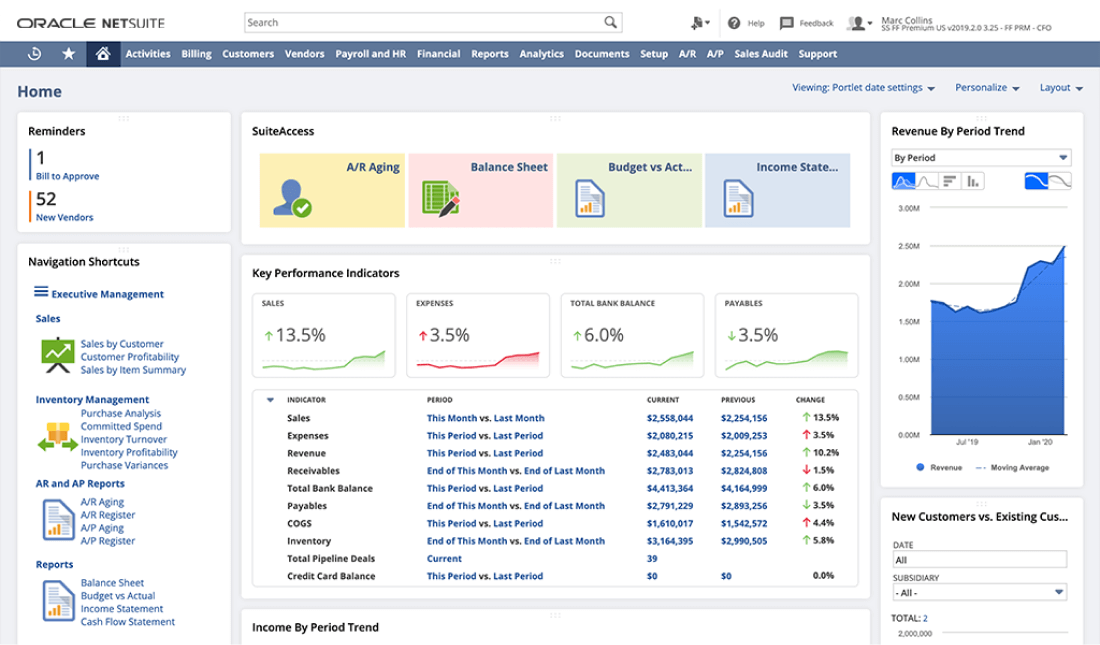
Credit: www.netsuite.com
How Erp Enhances Efficiency
ERP systems can automate many tasks. This reduces the need for manual work. Employees save time and avoid errors. Automated processes ensure work is done faster. This makes the business more efficient. For example, order processing can be automated. This improves customer satisfaction. Inventory management becomes easier too. ERP systems track stock levels automatically.
ERP systems integrate data from different departments. This gives a single view of the business. It helps in making better decisions. Data integration reduces duplication. All information is stored in one place. Employees can access data quickly. This leads to better communication. It also improves collaboration among teams. Data accuracy is enhanced too. This is vital for business success.
Erp Deployment Options
On-Premise ERP is installed on local servers. Businesses own and manage it. This option offers more control over data. It requires a larger upfront investment. It needs dedicated IT staff for maintenance. Security is managed in-house. Customization is easier with On-Premise ERP. Updates can be done on your schedule. It’s a good choice for companies with strict data policies.
Cloud-Based ERP is hosted on remote servers. It is accessed via the internet. This option has lower upfront costs. Vendors handle maintenance and updates. It provides better scalability. Data can be accessed from anywhere. Security is managed by the vendor. It is ideal for small to medium businesses. It offers quick implementation and lower IT overhead.
Choosing The Right Erp System
Understand your business requirements first. This helps in selecting the right ERP. Identify which processes you want to improve. List down specific needs like inventory management or customer relationship. Consider future growth. Think about what you will need in a few years. Talk to different departments. They can provide insights into their needs. Create a detailed list of requirements. This will help in the next step.
Research different ERP vendors. Look at their features and reputation. Check reviews and case studies. Compare their offerings with your needs. Ask for demonstrations. This helps you see the system in action. Evaluate their customer support. Good support is crucial for smooth operation. Consider the cost. Ensure it fits your budget. Look at scalability. The system should grow with your business. Make an informed choice. This ensures you pick the best ERP for your needs.
Erp Implementation Process
Good planning ensures a smooth ERP implementation. The first step is to set clear goals. Know what you want to achieve. Next, gather a team. This team will help plan and execute the project. They need to understand the current system well. Analyzing the current processes is important. This helps identify the gaps. Choose the right ERP software based on your needs. Make sure everyone knows their role and tasks. Regular meetings help keep the project on track.
Training is crucial for successful ERP use. Users need to learn the new system. Provide training sessions for all employees. Hands-on practice helps them get comfortable. Support is also key. Make sure there is help available when needed. This can be through a support team or help desk. Quick support reduces downtime and keeps things running smoothly.
Common Challenges With Erp
ERP software often faces challenges like high costs, complex implementation, and resistance from employees. Users may also struggle with data migration issues.
Cost And Budget Concerns
ERP systems can be very expensive. The initial cost is high. There are hidden costs too. Training, maintenance, and updates add to the cost. Small businesses find it hard to handle these costs. Careful planning can help manage the budget.
User Resistance
Changing systems is hard for many. People resist new technology. They fear losing their jobs. Training can help reduce this fear. Clear communication is key. Show the benefits to the users. Make them feel involved. This can ease the process.
Future Trends In Erp
AI and Machine Learning are making ERP systems smarter. These technologies help in predicting trends and automating tasks. This means less manual work and more accurate data. AI can suggest better ways to do tasks. Machine Learning can learn from past data and improve over time. This can save time and reduce errors.
Mobile ERP solutions allow users to access data on the go. This is important for workers who travel or work remotely. Mobile apps make it easy to check reports and update information. This can be done from anywhere. This flexibility increases productivity. It also ensures that important data is always at hand. A mobile-friendly ERP system can improve decision-making.
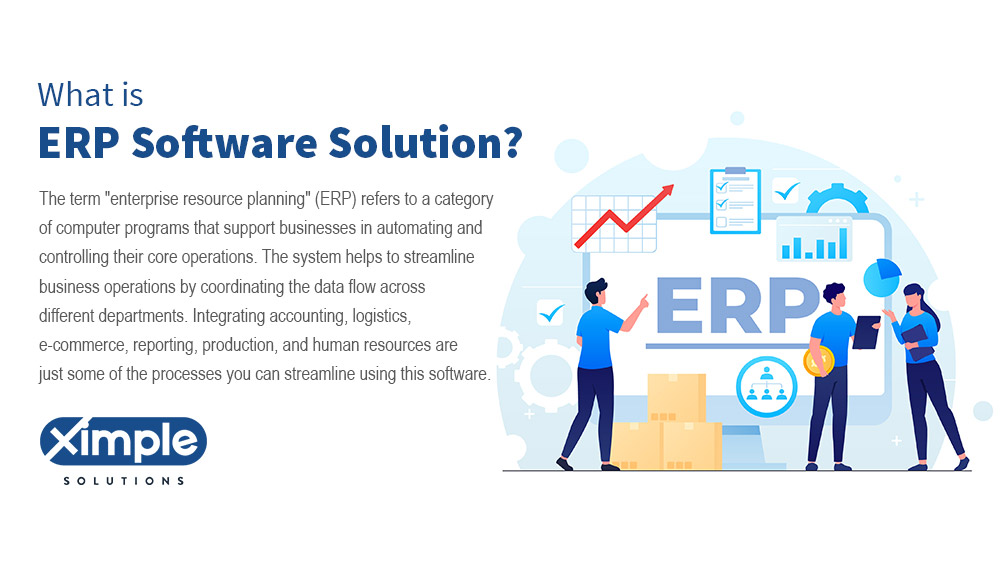
Credit: www.ximplesolution.com
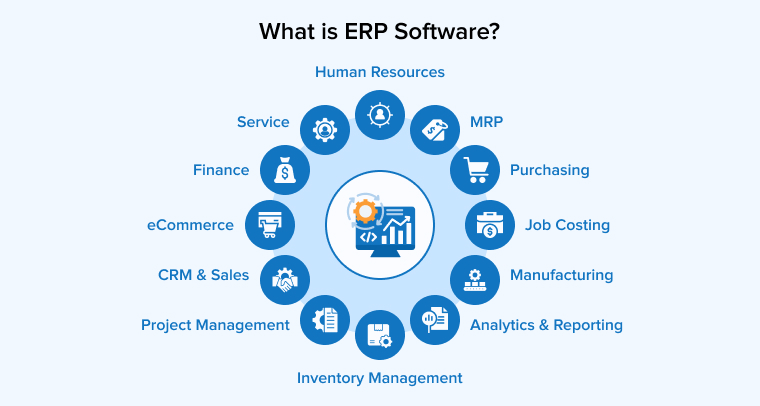
Credit: www.tatvasoft.com
Conclusion
ERP software simplifies business processes and improves efficiency. It integrates various functions, aiding better management. With ERP, companies can reduce costs and enhance productivity. It provides real-time data, helping in quick decision-making. Many industries benefit from using ERP systems. Small and large businesses can both gain from its implementation.
Choosing the right ERP system is crucial. Ensure it meets your business needs. Proper training and support are also essential. Embrace ERP to streamline operations and stay competitive.
